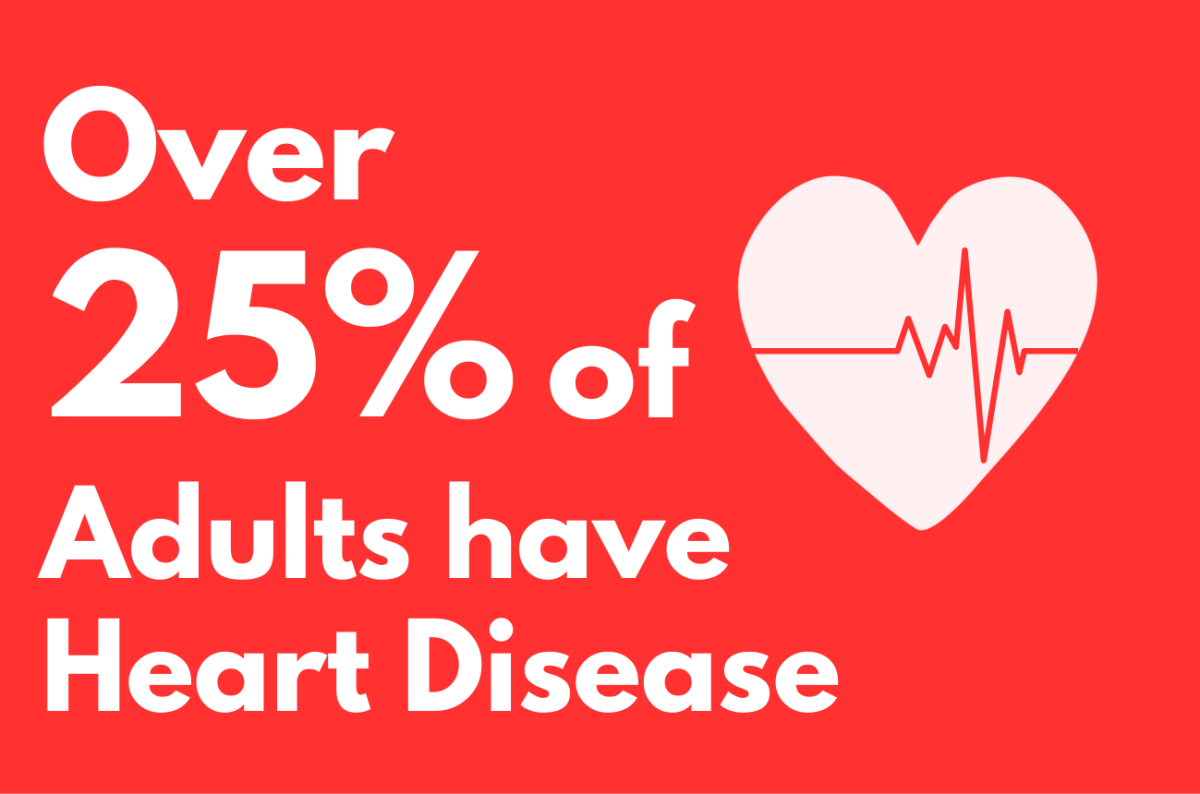As one of the most common diseases in the world, it should come as no surprise that heart disease is also the leading killer among adults worldwide.
In the U.S., over 25% of the population suffers from heart disease, and it claims a life almost every 33 seconds, according to the CDC.
It’s a disease that likely affects you or someone you know personally.
Every year on Sept. 29, the World Heart Federation recognizes World Heart Day to bring awareness to heart disease. The global organization features hundreds of affiliate organizations that helped people find useful resources about causes and risk factors.
Heart disease is much more prevalent in older individuals, but the lifestyle and habits of younger people can compile into serious health issues in the long run.
Smoking, excessive drinking, unresolved stress and physical inactivity are all factors that play into heart disease at a younger age, according to a report by the National Institutes of Health.
Similarly, those with diabetes or a history of diabetes are more likely to develop heart disease than those without.
Because of this, the World Heart Federation says that nearly 80% of heart disease deaths worldwide are preventable.
While heart disease can affect anyone, studies show that certain groups of people are at greater risk than others.
For example, Black adults are 11% more likely to develop cardiovascular disease than white adults. Another discrepancy is that almost 60% of Black adults suffer from hypertension, according to the Cleveland Clinic — more than any other ethnic group in the U.S.
Preventing heart disease can be both a physical and mental task. While there are medications for certain types of heart disease, the CDC encourages some healthy habits to help ward off the disease.
Experts recommend limiting the use of tobacco and alcohol. They also encourage maintaining a healthy weight through diet and exercise because overweight individuals are more likely to develop heart disease.



